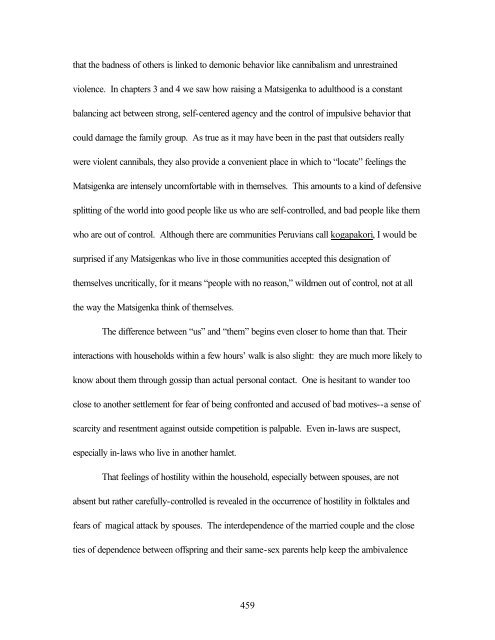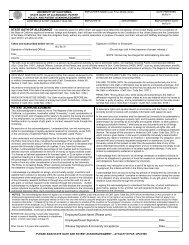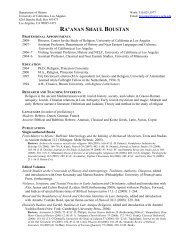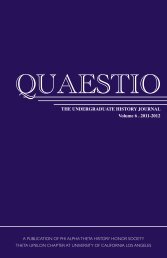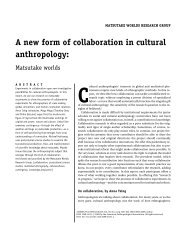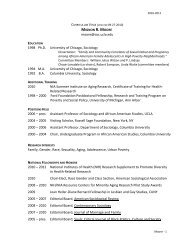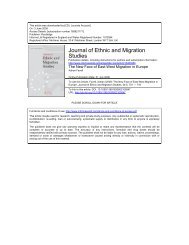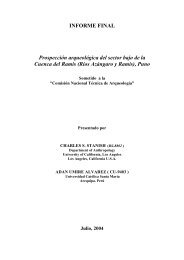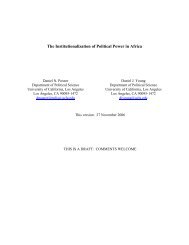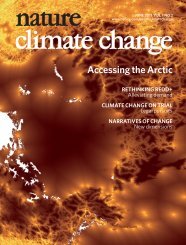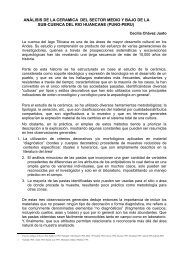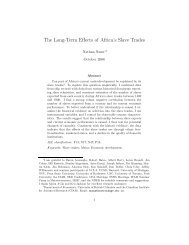433 Chapter Seven Cosmos For the Matsigenka of Shimaa, kameti ...
433 Chapter Seven Cosmos For the Matsigenka of Shimaa, kameti ...
433 Chapter Seven Cosmos For the Matsigenka of Shimaa, kameti ...
You also want an ePaper? Increase the reach of your titles
YUMPU automatically turns print PDFs into web optimized ePapers that Google loves.
that <strong>the</strong> badness <strong>of</strong> o<strong>the</strong>rs is linked to demonic behavior like cannibalism and unrestrained<br />
violence. In chapters 3 and 4 we saw how raising a <strong>Matsigenka</strong> to adulthood is a constant<br />
balancing act between strong, self-centered agency and <strong>the</strong> control <strong>of</strong> impulsive behavior that<br />
could damage <strong>the</strong> family group. As true as it may have been in <strong>the</strong> past that outsiders really<br />
were violent cannibals, <strong>the</strong>y also provide a convenient place in which to “locate” feelings <strong>the</strong><br />
<strong>Matsigenka</strong> are intensely uncomfortable with in <strong>the</strong>mselves. This amounts to a kind <strong>of</strong> defensive<br />
splitting <strong>of</strong> <strong>the</strong> world into good people like us who are self-controlled, and bad people like <strong>the</strong>m<br />
who are out <strong>of</strong> control. Although <strong>the</strong>re are communities Peruvians call kogapakori, I would be<br />
surprised if any <strong>Matsigenka</strong>s who live in those communities accepted this designation <strong>of</strong><br />
<strong>the</strong>mselves uncritically, for it means “people with no reason,” wildmen out <strong>of</strong> control, not at all<br />
<strong>the</strong> way <strong>the</strong> <strong>Matsigenka</strong> think <strong>of</strong> <strong>the</strong>mselves.<br />
The difference between “us” and “<strong>the</strong>m” begins even closer to home than that. Their<br />
interactions with households within a few hours’ walk is also slight: <strong>the</strong>y are much more likely to<br />
know about <strong>the</strong>m through gossip than actual personal contact. One is hesitant to wander too<br />
close to ano<strong>the</strong>r settlement for fear <strong>of</strong> being confronted and accused <strong>of</strong> bad motives--a sense <strong>of</strong><br />
scarcity and resentment against outside competition is palpable. Even in-laws are suspect,<br />
especially in-laws who live in ano<strong>the</strong>r hamlet.<br />
That feelings <strong>of</strong> hostility within <strong>the</strong> household, especially between spouses, are not<br />
absent but ra<strong>the</strong>r carefully-controlled is revealed in <strong>the</strong> occurrence <strong>of</strong> hostility in folktales and<br />
fears <strong>of</strong> magical attack by spouses. The interdependence <strong>of</strong> <strong>the</strong> married couple and <strong>the</strong> close<br />
ties <strong>of</strong> dependence between <strong>of</strong>fspring and <strong>the</strong>ir same-sex parents help keep <strong>the</strong> ambivalence<br />
459


